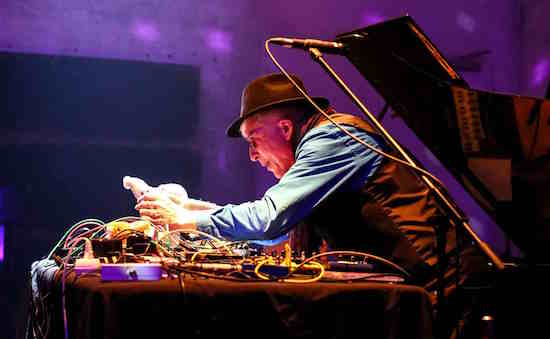Photograph courtesy of Roland Owsnitzki
Talking to Rhys Chatham is like taking a roll call of all the major players in the US and European avant-garde of the ’60s and ’70s. Though the performer-composer’s artistic maturation arguably didn’t come about until the later part of that period, when he began smashing the worlds of minimalism and rock music together like so many spiralling planets, his journey was catalysed by composers working in those hotly-contested areas of musical innovation that defined the 1960s: namely minimalism, early electronic composition and improvisation.
This is why he can spin off a list of acquaintances he made through music that would set the head of any present-day avant fan reeling. As a teenage music student in New York, Chatham was the picture of tenacity, studying with the Hindustani classical master Pandit Pran Nath, cribbing electronics notes from Morton Subotnick and blagging free lessons from La Monte Young. It was only later, while at a Ramones concert, that he discovered you didn’t need a keg of beer to get buzzed off rock music; you could get drunk on the overtones. Consequently, with pieces like Guitar Trio, he set to work making an outright mockery of distinctions between art music and rock, and in doing so paved the way for generations of avant-rockers, from Sonic Youth to Sunn O))).
This Baker’s Dozen comprises Chatham’s early musical epiphanies, or works by composers whose ideas played a key part in cracking open his young mind. As is often the case in minimalism, the sound always returns to its source, and as Rhys asserts, you can certainly hear the influence of Steve Reich and Charlemagne Palestine in the patient intensity of his new work, Pythagorean Dream. With head-spinning use of phase-shifting and delay pedals, it sees Chatham making maximal impact with more minimal instrumentation after the gargantuan 400-guitar piece A Crimson Grail. With shades of trumpet, guitar and flute, all played by Chatham himself, it’s the impactful work of a true journeyman. With this list, Chatham gives us a view of the people that helped mould him.
Pythagorean Dream is out now on Foom; head to the label’s Bandcamp to get hold of it


